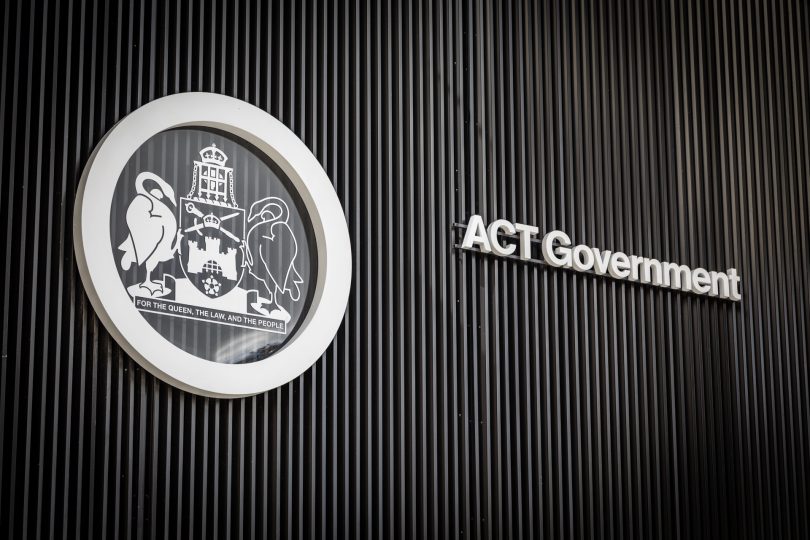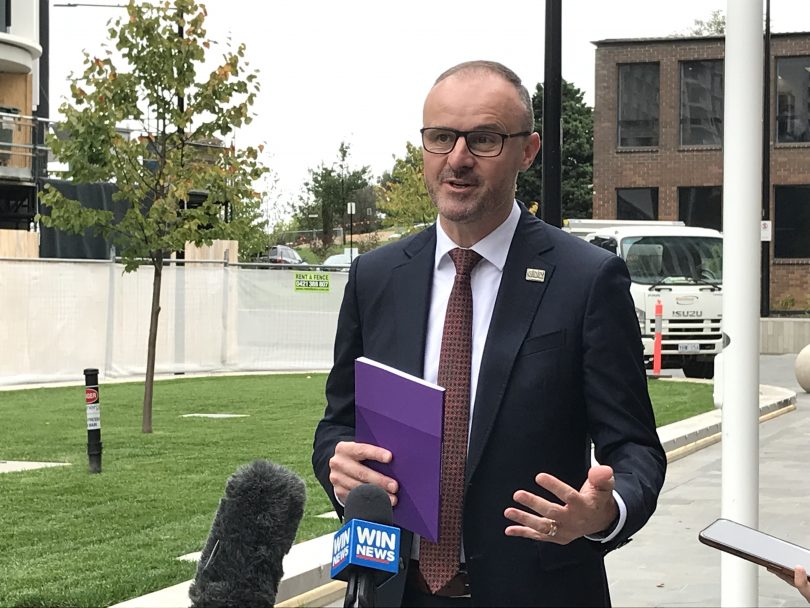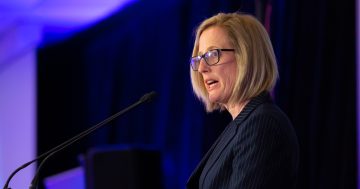
Chief Minister Andrew Barr said pay rises – as well as improvements to conditions – were essential to attracting skilled staff to the ACT public service. Photo: Michelle Kroll.
ACT public servants should expect wage and superannuation increases – as well as better working conditions – Chief Minister Andrew Barr indicated today.
Mr Barr acknowledged the current tight labour market, with local unemployment at 3 per cent, was indeed an “employee’s market”, and the next round of enterprise bargaining agreements in the private and public sector would undoubtedly put upward pressure on wages.
“That’s pretty clear in a very competitive labour market where there are more job vacancies than there are unemployed people. It’s an employee’s market,” Mr Barr said.
Mr Barr added that the ACT Government, as the city’s second-largest employer, would need to offer a competitive salary and super package in the next lot of bargaining rounds with ACT employees and make working conditions more enticing.
“I’ve been very clear on the workplace flexibility side where the government stands in that regard … as an employer, the ACT Government has delivered real wage increases, but it’s a package. It’s not just about the headline salary increase; it’s about working conditions and flexibility,” Mr Barr said today (24 March).
The ACT mid-year budget review revised forecast wage growth upward by 1 per cent from the October budget. The wage price index is now expected to grow by 2.75 per cent this financial year.
Eighteen enterprise bargaining agreements are due to expire this year.

Chief Minister Andrew Barr has often said the 9-to-5 working world is gone. Photo: Lottie Twyford.
Mr Barr is on record as an advocate for more flexible working conditions for public servants. In question time last December he declared that the era of public servants working in the office from 9-to-5, Monday to Friday, was over.
Instead, public servants would be able to work at locations most convenient to them – whether at an office building or home.
“They may well be working out of the Gungahlin ACT Government office building if they live in Gungahlin and that suits them, and they may well be working out of the Woden ACT Government building if they live in the Woden area and that suits them; similarly, in Tuggeranong, in Belconnen, in the city and in Dickson,” he said.
“There will no longer be an operating requirement of compulsory attendance, if you like, at an ACT Government office building 9-to-5.”
However, the Opposition says it is vital for the survival of small businesses like cafes, dry cleaners and newsagents that public servants work in their offices.
Last month, Mr Barr issued a stern reprimand for those who view public servants as “consumer fodder”.
“They are not robots and they are not units of consumption. Their job is to do work for the people of the ACT, not to consume in our economy. That’s their private business,” he said in annual report hearings earlier this year.
According to Mr Barr’s economic development plan released last week, work-life balance will be a priority for the Territory in the future.
Mr Barr said the goal was for Canberra to be a city that gave back time and prioritised wellbeing and liveability.
“Across the world, COVID-19 has forced people to reassess how they want to live,” he said. “Canberra is uniquely placed to meet the need for a better work-life balance.”

CPSU regional secretary Maddy Northam welcomed Mr Barr’s comments, although she said she wouldn’t congratulate the government until the agreements were finalised. Photo: Region Media.
Mr Barr’s comments were welcomed by Community and Public Sector Union regional secretary Maddy Northam who said it was particularly heartening to hear of expected superannuation increases.
“CPSU members have told us loud and clear that they want to see 15.4 per cent superannuation for the ACT public service in line with their colleagues in the Australian Public Service,” she said.
“That’s great for working people, and it’s great for the ACT public service to bring that talent across from the APS and retain people in the ACT public service.”
She also welcomed commitments to increased flexibility, saying the ACT public service was leading the country in this regard.
Enterprise bargaining agreement negotiations have begun and will continue in the coming months.
Ms Northam said while today’s comments were “fantastic”, she would reserve the right to congratulate the Chief Minister until after the bargaining was completed.


















